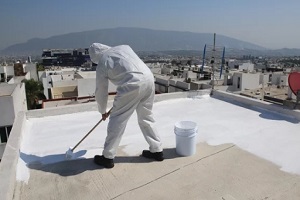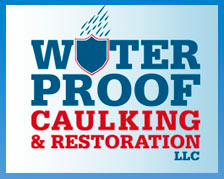 New Jersey’s weather is all over the board—from feet of snow to intense thunderstorms, wind, and everything in between. This makes planning for building maintenance and safety difficult, because what works in summer may not be as effective in winter. One of the most overlooked options to keep a commercial structure safe from the elements is waterproofing.
New Jersey’s weather is all over the board—from feet of snow to intense thunderstorms, wind, and everything in between. This makes planning for building maintenance and safety difficult, because what works in summer may not be as effective in winter. One of the most overlooked options to keep a commercial structure safe from the elements is waterproofing.
Waterproofing can be done at any time during a building’s life cycle; it does not necessarily need to be completed while construction is still ongoing. However, smart building owners understand that large projects like this are an investment, and it is wise to consider the return on investment for a substantial change like commercial waterproofing.
Here is an overview of the long-term savings and ROI you can achieve by investing in commercial waterproofing in New Jersey.
Does Commercial Waterproofing Save You Money?
In short—yes, NJ commercial waterproofing can save a building owner a significant amount of money over the course of a structure’s life. In addition to avoiding expenses thanks to the protection that waterproofing offers, this service can also boost the value of the building and even improve customer relations, achieving a maximized ROI over its lifespan. It does this through:
Prevention of Moisture-Related Issues
The biggest driver behind waterproofing a commercial building is preventing damage associated with water. Among these, the greatest and most insidious threat is mold, which can spread through nearly an entire building before being noticed behind the walls.
Once mold has gained a foothold, it is very difficult to remove without expensive remediation, and the process of tackling this project could slow or even halt business operations. Mold can cause a reaction in humans too.
Those without allergies may still experience congestion, watery eyes, or an itchy throat, but people who suffer from allergies already can see an even more severe response. This might cause valuable workers to call out sick or be less productive.
In addition, the moisture associated with mold and mildew can weaken internal structures such as the building’s framing, making it unsafe. Waterproofing stops moisture from accumulating indoors so that mold does not have the humidity it needs to grow.
Avoiding Expensive Repairs
Mold is not the only type of damage that a building can sustain when it is not waterproofed against rain and snowmelt. New Jersey is located in an area where temperatures swing widely between seasons. As water freezes inside the cracks and gaps of a building’s masonry, it expands, creating bigger gaps. Then, the ice thaws, and the process repeats.
Without waterproofing, these cracks can grow until bricks begin to fall out and the structural stability of the building is compromised. Facilities that invest in commercial waterproofing enjoy long-term savings in repair and maintenance costs.
Improvement in Resale Value
Not all commercial structures are looking to change hands anytime soon, but for those who are considering a move to a new location, few things improve resale value more than being able to demonstrate comprehensive care of the building.
Buyers will pay more for a structure that has been waterproofed because they can rest assured it is not hiding a mold problem or is prone to masonry damage that is expensive to repair. The investment in waterproofing can typically be recovered in whole or in part during resale for a favorable ROI.
Boost in Customer Opinion
Structural damage and repairs are the biggest reasons to invest in waterproofing, but few building owners consider the less tangible savings and ROI of committing to this task.
Waterproofing such as impermeable membranes prevent mold indoors, it is true—but they also stop mildew, algae, and other unwanted growths from developing on the outside of the structure as well. For customer-facing buildings, this can be essential.
When a customer approaches a business whose exterior is poorly maintained, that image reflects upon the brand. They may assume that the company doesn’t care about them, just like it doesn’t appear to care about the building.
When customers are greeted by a fully waterproofed structure in pristine condition, they are more likely to associate the business with trustworthiness, care, and good service. Improving customer relations boosts engagement and profit, resulting in a favorable ROI for the waterproofing project that drove these attitudes.
Get NJ Commercial Waterproofing from the Pros
Commercial waterproofing in New Jersey is a critical part of keeping a building safe against the many types of severe weather that can harm it. The experts at Waterproof Caulking & Restoration have helped dozens of commercial structures to achieve their waterproofing goals both during and after construction.
Contact us to schedule an appointment or to discuss the types of waterproofing applications that we can provide for your building.
